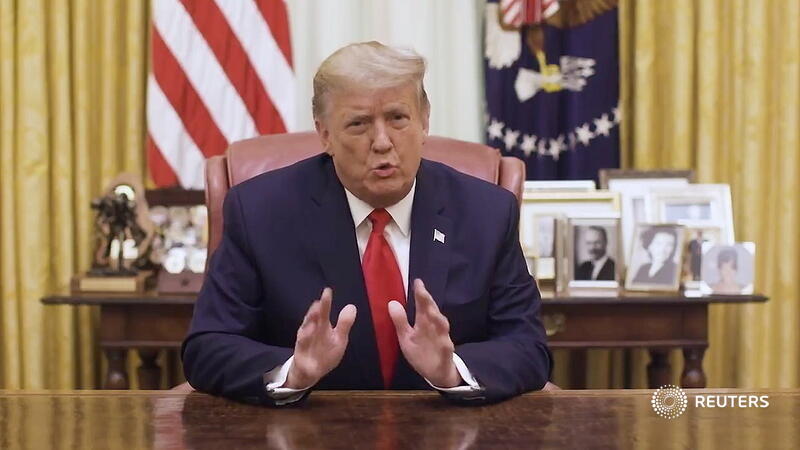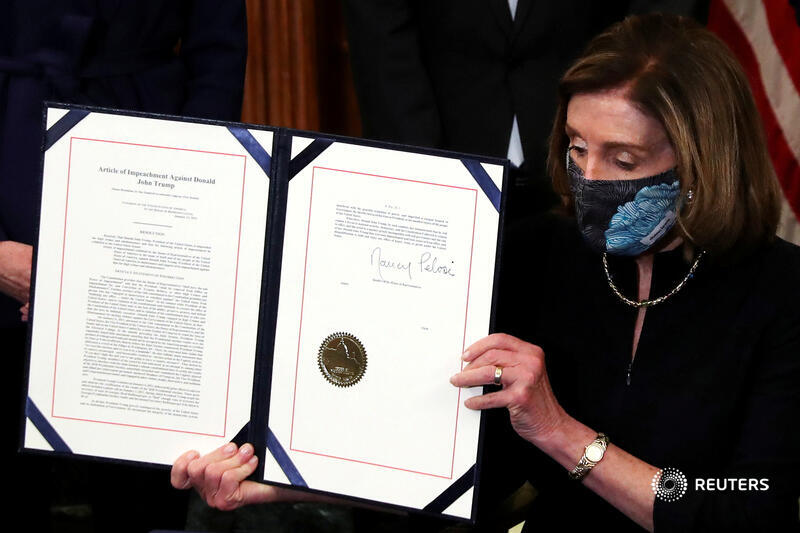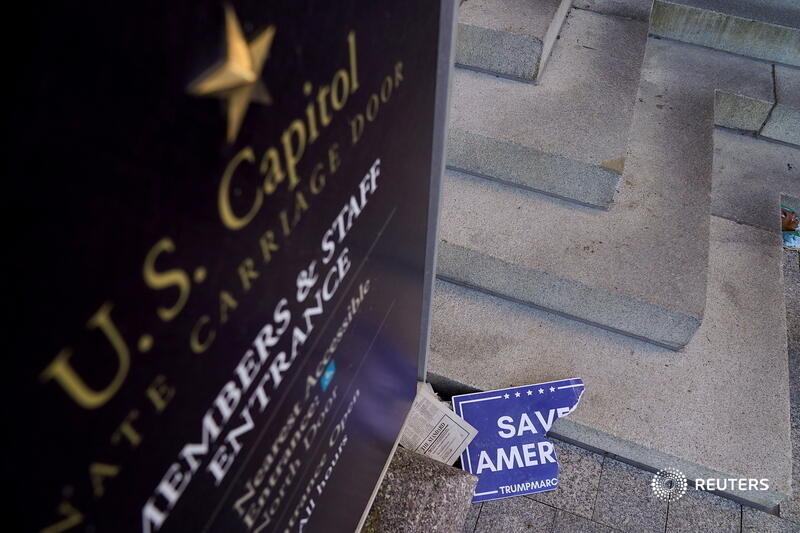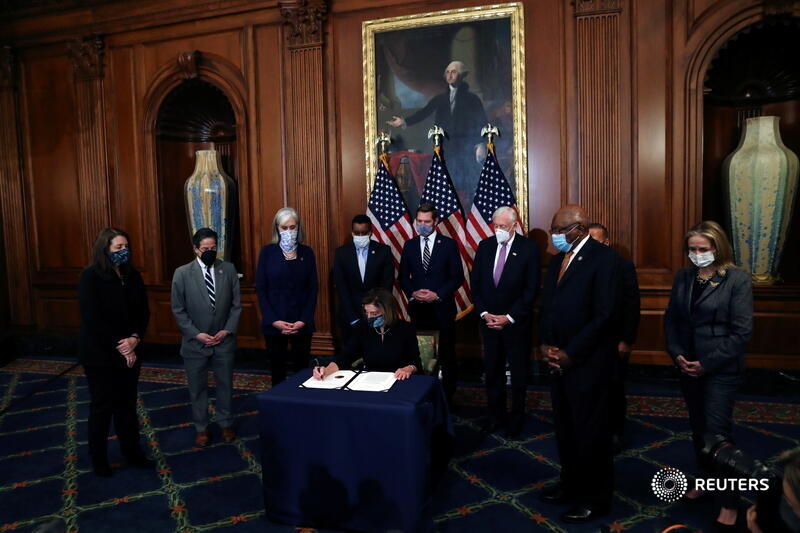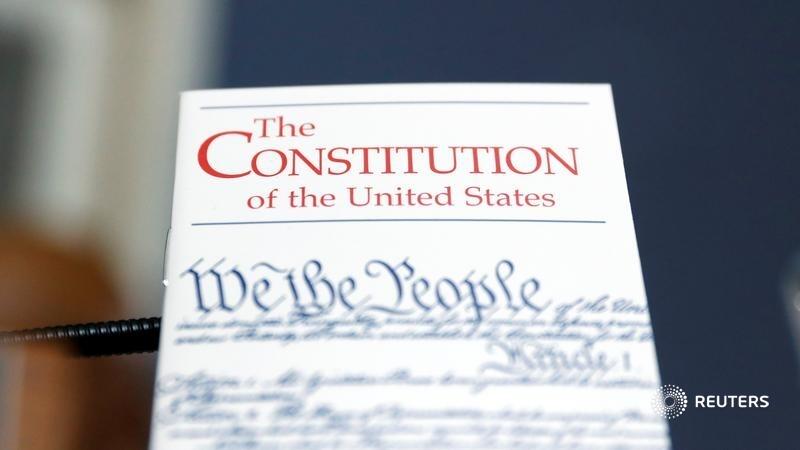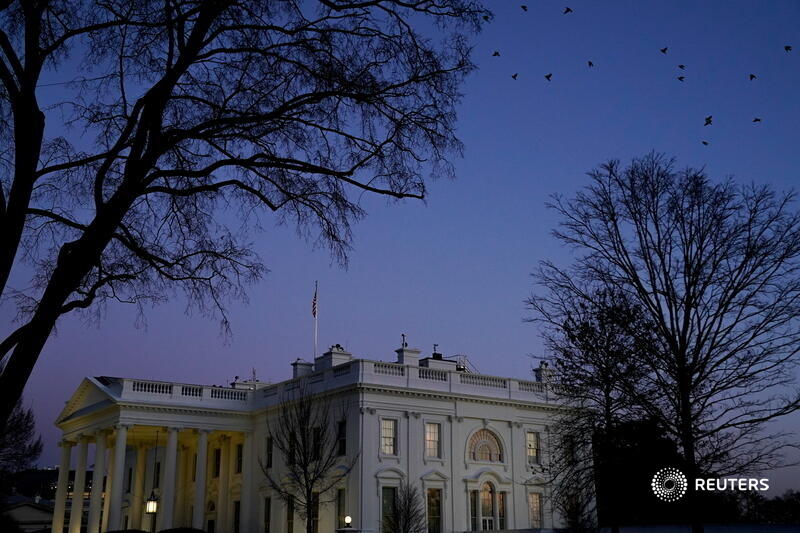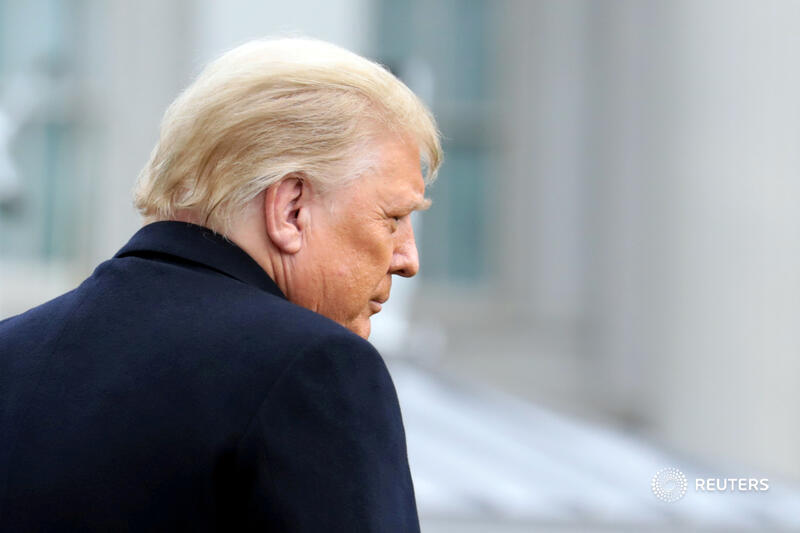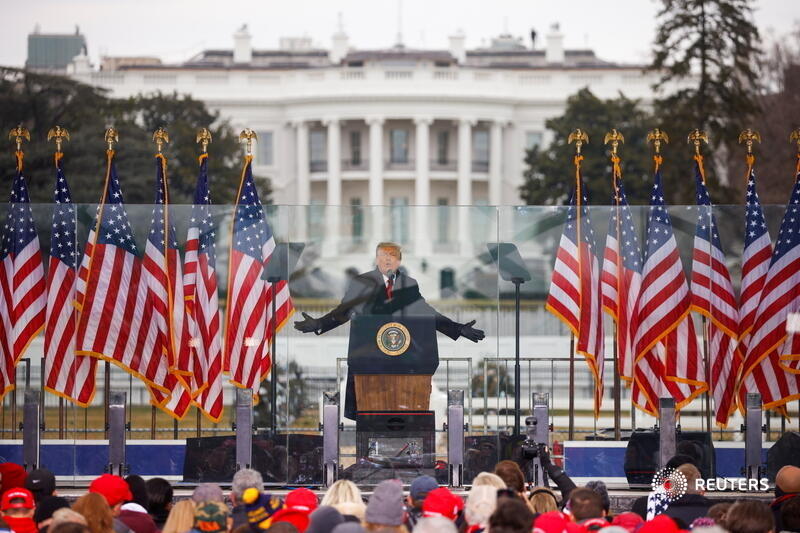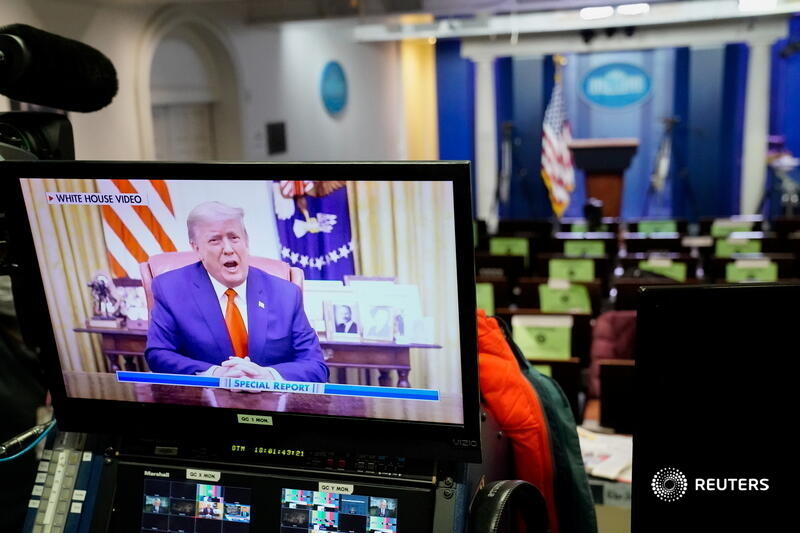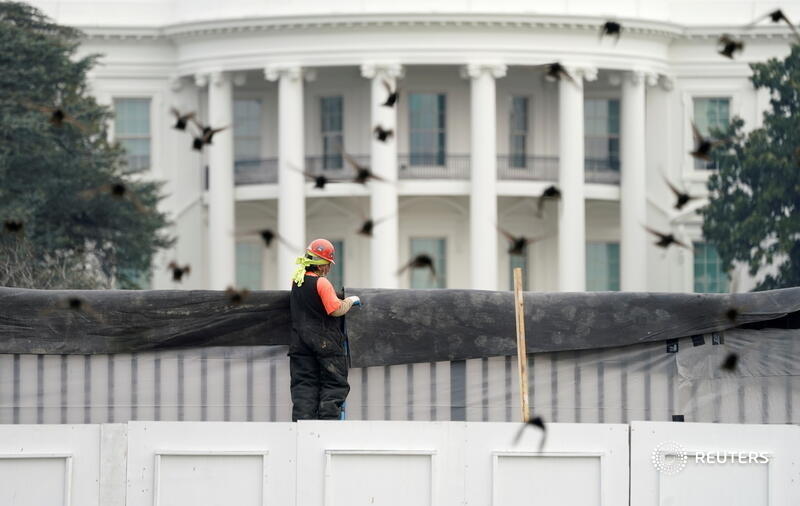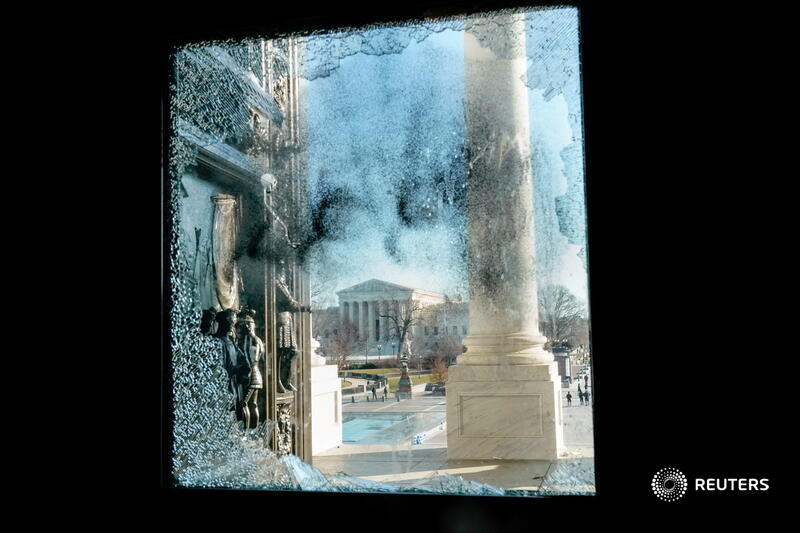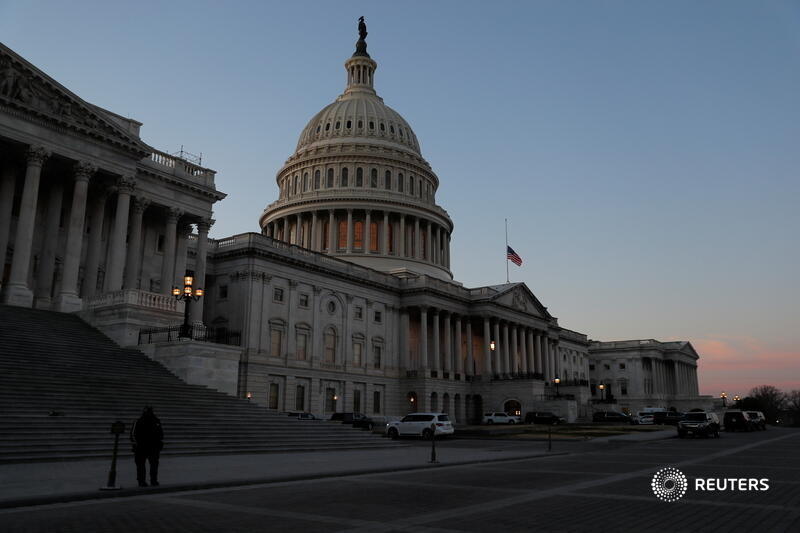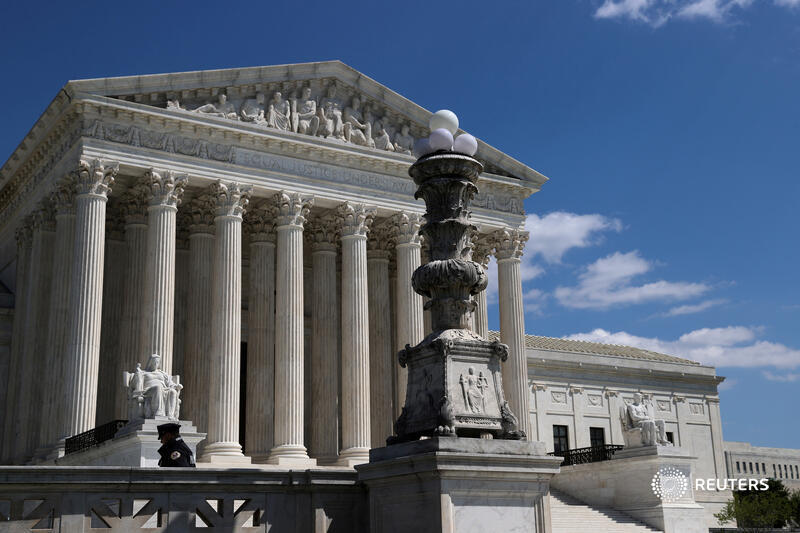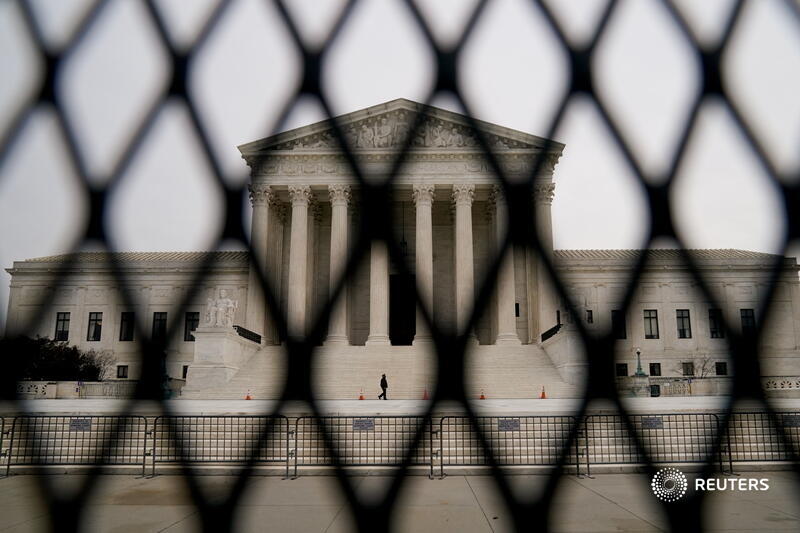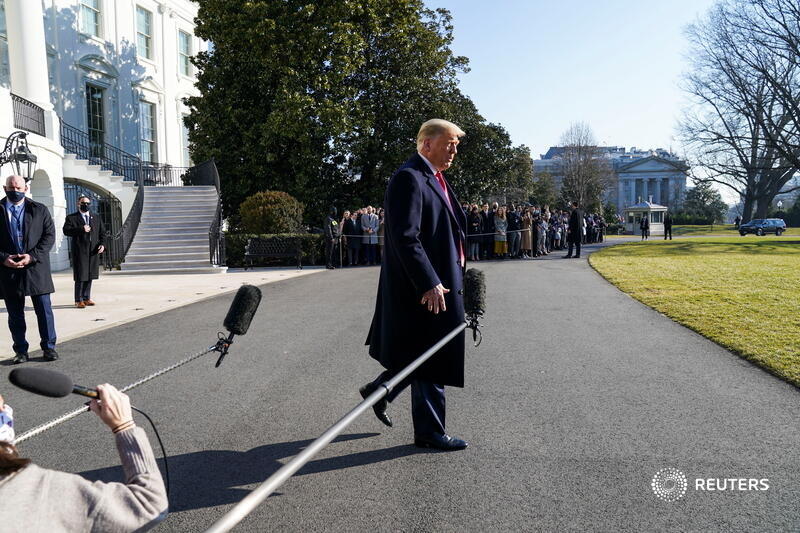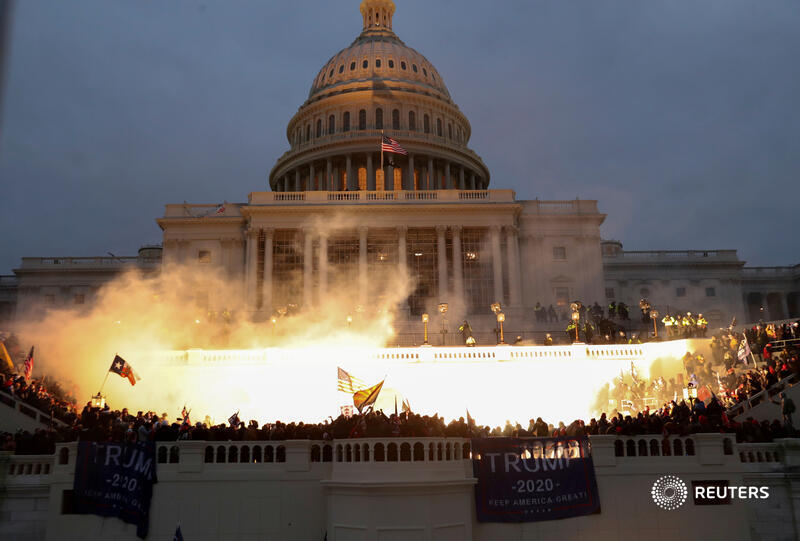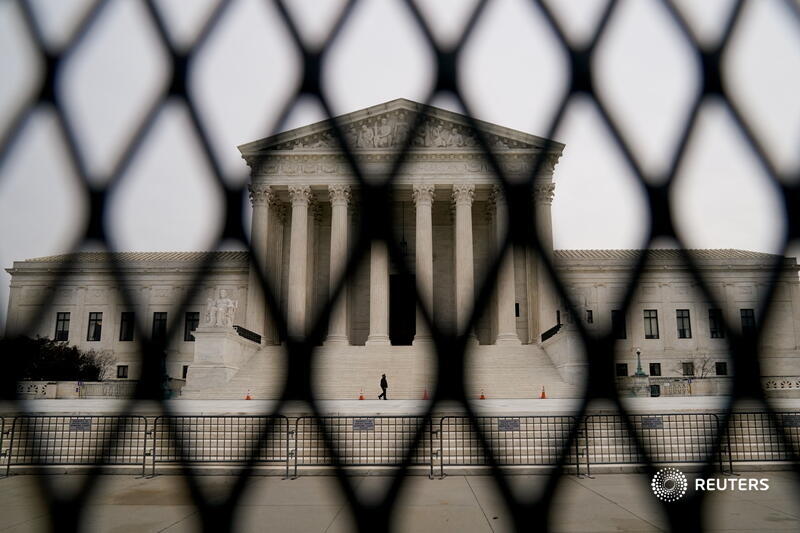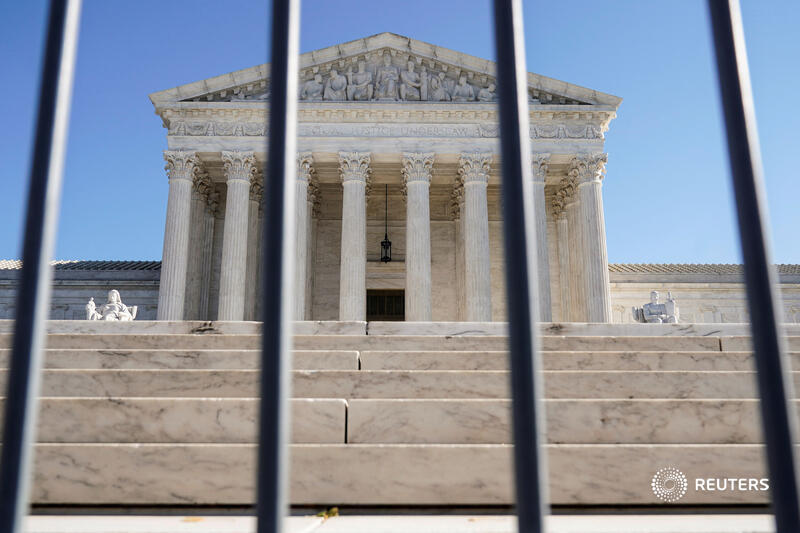Donald Trump became the first president in U.S. history to be impeached twice, as 10 of his fellow Republicans joined Democrats in the House of Representatives. Here’s a guide to what happens next  https://reut.rs/3ia6PwJ
https://reut.rs/3ia6PwJ
 https://reut.rs/3ia6PwJ
https://reut.rs/3ia6PwJ
Is the impeachment proceeding over?
No. Impeachment refers only to the House, the lower chamber of Congress, bringing charges, or Articles of Impeachment. The next major step is for the Senate, the upper chamber, to have a trial to determine Trump’s guilt
No. Impeachment refers only to the House, the lower chamber of Congress, bringing charges, or Articles of Impeachment. The next major step is for the Senate, the upper chamber, to have a trial to determine Trump’s guilt
A two-thirds majority is needed to convict Trump. If all 100 senators are present for the vote, at least 17 Republicans need to join the Democrats to convict Trump
When will the trial begin?
The Senate’s Republican majority leader, Mitch McConnell, has rejected Democratic calls for an immediate impeachment trial and said it cannot begin until after the Senate returns from a recess on Jan. 19
The Senate’s Republican majority leader, Mitch McConnell, has rejected Democratic calls for an immediate impeachment trial and said it cannot begin until after the Senate returns from a recess on Jan. 19
What is Trump’s likely defense in the Senate trial?
The House approved a single article of impeachment accusing Trump of 'incitement of insurrection,' focused on a speech he delivered to thousands of supporters shortly before the pro-Trump mob rampaged through the Capitol
The House approved a single article of impeachment accusing Trump of 'incitement of insurrection,' focused on a speech he delivered to thousands of supporters shortly before the pro-Trump mob rampaged through the Capitol
Trump is likely to argue at trial that his remarks were free speech protected by the Constitution’s First Amendment and that, while he told supporters to 'fight,' he did not intend it as a literal call to violence
So a former president can be impeached?
Yes. The consensus among scholars is that a 'late impeachment' is constitutional
Yes. The consensus among scholars is that a 'late impeachment' is constitutional
These scholars note that impeachment is used not just to remove officials from office, but also disqualify them from future office. That means there is still a reason to try Trump after he leaves the White House
Legal experts said disqualification could be accomplished through the impeachment proceedings or the 14th Amendment of the Constitution.
Here is how the disqualification effort could play out https://reut.rs/3ibyeyg by @JanNWolfe
https://reut.rs/3ibyeyg by @JanNWolfe
Here is how the disqualification effort could play out
 https://reut.rs/3ibyeyg by @JanNWolfe
https://reut.rs/3ibyeyg by @JanNWolfe
Can Trump's disqualification be accomplished through impeachment?
The Constitution says there are two ways to punish an impeached official: removal from office or 'disqualification to hold and enjoy any office of honor, trust or profit under the United States'
The Constitution says there are two ways to punish an impeached official: removal from office or 'disqualification to hold and enjoy any office of honor, trust or profit under the United States'
The House approved a single article of impeachment accusing Trump of inciting insurrection when he delivered an incendiary speech to supporters shortly before the pro-Trump mob rampaged the Capitol
Removing an official requires a 'conviction' by a two-thirds Senate majority under the Constitution. Under precedent, only a simple majority is needed for disqualification. Historically, that vote only happens after a conviction
Analyzing historical documents, some law experts say the founders did not intend the presidency to be considered an 'office' under the disqualification clause, while others argue that the term applies
Can Trump be disqualified if he is not convicted by the Senate?
This is uncharted legal territory, and there is no clear answer, scholars say
This is uncharted legal territory, and there is no clear answer, scholars say
Paul Campos, a professor of constitutional law at the University of Colorado, said he believed a vote to disqualify Trump can be held even if there are not enough votes for conviction
The Supreme Court has made clear that the Senate has wide latitude to determine how it conducts a trial, Campos added
But Brian Kalt, a law professor at Michigan State University, said he thought disqualification would require conviction first. To do otherwise would be the equivalent of punishing the president for an offense he did not commit, Kalt said
What about the 14th Amendment?
Section 3 of the 14th Amendment provides an alternative path for disqualification
Section 3 of the 14th Amendment provides an alternative path for disqualification
The provision states that no person shall hold office if they have engaged in 'insurrection or rebellion' against the United States. It was enacted following the Civil War to bar Confederates from holding public office
Under congressional precedent, only a simple majority of both chambers is needed to invoke this penalty. Congress can later remove the disqualification, but only if two-thirds of both houses vote in favor of doing so
Could Trump challenge a disqualification in court?
A Supreme Court case from 1993 makes clear that the court is wary of second-guessing how the Senate handles impeachment
A Supreme Court case from 1993 makes clear that the court is wary of second-guessing how the Senate handles impeachment

 Read on Twitter
Read on Twitter